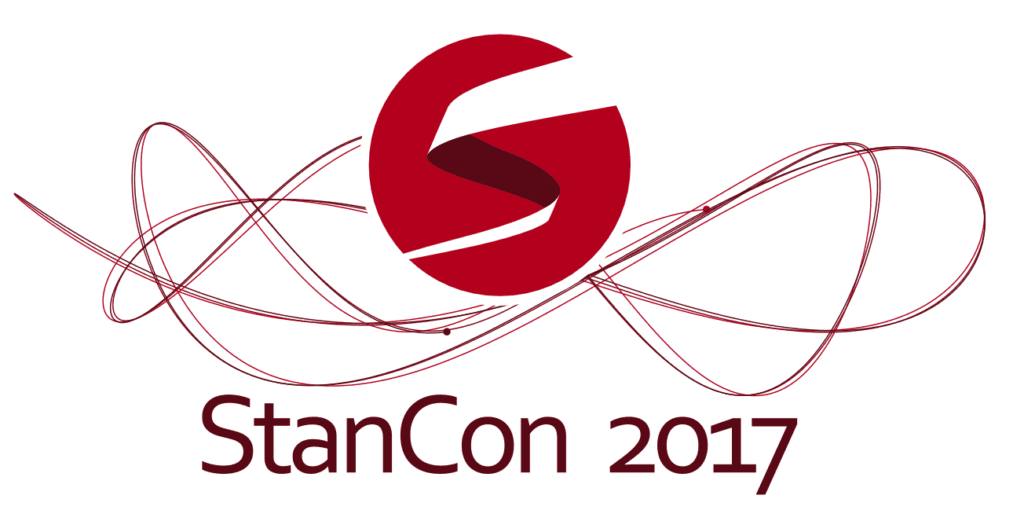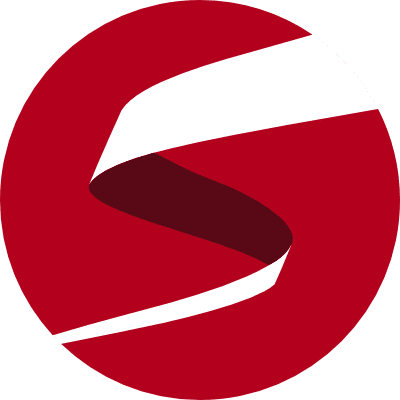It looks pretty cool!
Wednesday, Jan 10
Invited Talk: Predictive information criteria in hierarchical Bayesian models for clustered data. Sophia Rabe-Hesketh and Daniel Furr (U California, Berkely) 10:40-11:30am
Does the New York City Police Department rely on quotas? Jonathan Auerbach (Columbia U) 11:30-11:50am
Bayesian estimation of mechanical elastic constants. Ben Bales, Brent Goodlet, Tresa Pollock, Linda Petzold (UC Santa Barbara) 11:50am-12:10pm
Joint longitudinal and time-to-event models via Stan. Sam Brilleman, Michael Crowther, Margarita Moreno-Betancur, Jacqueline Buros Novik, Rory Wolfe (Monash U, Columbia U) 12:10-12:30pm
Lunch 12:30-2:00pm
ScalaStan. Joe Wingbermuehle (Cibo Technologies) 2:00-2:20pm
A tutorial on Hidden Markov Models using Stan. Luis Damiano, Brian Peterson, Michael Weylandt 2:20-2:40pm
Student Ornstein-Uhlenbeck models served three ways (with applications for population dynamics data). Aaron Goodman (Stanford U) 2:40-3:00pm
SlicStan: a blockless Stan-like language. Maria I. Gorinova, Andrew D. Gordon, Charles Sutton (U of Edinburgh) 3:00-3:20pm
Break 3:20-4:00pm
Invited Talk: Talia Weiss (MIT) 4:00-4:50pm
Thursday, Jan 11
Invited Talk: Sean Taylor and Ben Letham (Facebook) 10:40-11:30am
NPCompare: a package for nonparametric density estimation and two populations comparison built on top of PyStan. Marco Inacio (U of São Paulo/UFSCar) 11:30-11:50am
Introducing idealstan, an R package for ideal point modeling with Stan. Robert Kubinec (U of Virginia) 11:50am-12:10pm
A brief history of Stan. Daniel Lee (Generable) 12:10-12:30pm
Lunch 12:30-1:30pm
Computing steady states with Stan’s nonlinear algebraic solver. Charles C. Margossian (Metrum, Columbia U) 1:30-1:50pm
Flexible modeling of Alzheimer’s disease progression with I-Splines. Arya A. Pourzanjani, Benjamin B. Bales, Linda R. Petzold, Michael Harrington (UC Santa Barbara) 1:50-2:10pm
Intrinsic Auto-Regressive (ICAR) Models for Spatial Data, Mitzi Morris (Columbia U) 2:10-2:30pm
Modeling/Data Session + Classes 2:30-4:10pm
Open session for consultations on modeling and data problems with Stan developers and modelers. 2:30-4:10pm
Session 3 of Intro to Stan 2:30-4:10pm
2:30-3:30pm Have I converged successfully? How to verify fit and diagnose fit problems, Bob Carpenter
What is new to Stan 3:30-4:10pm
Invited Talk: Manuel Rivas (Stanford U) 4:00-4:50pm
Friday, Jan 12
Invited Talk: Susan Holmes (Stanford U) 10:40-11:30am
Aggregate random coefficients logit — a generative approach. Jim Savage, Shoshana Vasserman 11:30-11:50am
The threshold test: Testing for racial bias in vehicle searches by police. Camelia Simoiu, Sam Corbett-Davies, Sharad Goel, Emma Pierson (Stanford U) 11:50am-12:10pm
Assessing the safety of Rosiglitazone for the treatment of type II diabetes. Konstantinos Vamvourellis, K. Kalogeropoulos, L. Phillips (London School of Economics and Political Science) 12:10-12:30pm
Lunch 12:30-1:30pm
Causal inference with the g-formula in Stan. Leah Comment (Harvard U) 1:30-1:50pm
Bayesian estimation of ETAS models with Rstan. Fausto Fabian Crespo Fernandez (Universidad San Francisco de Quito) 1:50-2:10pm
Invited Talk: Andrew Gelman 2:10-3:00 (Columbia U) (virtual)
Classes/Tutorials
We have tutorials that start at the crack of 8am for those desiring further edification beyond the program—these do not run in parallel to the main session but do run parallel to each other:
Introduction to Stan: Know how to program? Know basic statistics? Curious about Bayesian analysis and Stan? This is the course for you. Hands on, focused and an excellent way to get started working in Stan. Two hours every day, 6 hours total. Jonah Sol Gabry.
Executive decision making the Bayesian way: This is for non-technical managers and technical folks who need to communicate with managers to learn the core of decision making under uncertainty. One hour every day. Jonathan Auerbach, Breck Baldwin, Eric Novik.
Advanced Hierarchical Models in Stan: The hard stuff. Very interactive, very intense. Topics vary by day. Ben Goodrich.
Model assessment, model selection and inference after model selection. Aki Vehtari.
How to develop for Stan at the C++ level: Overview of Stan C++ architecture and build/development process for contributors. Charles Christopher Margossian.
[edited by Aki: added Model selection tutorial]

